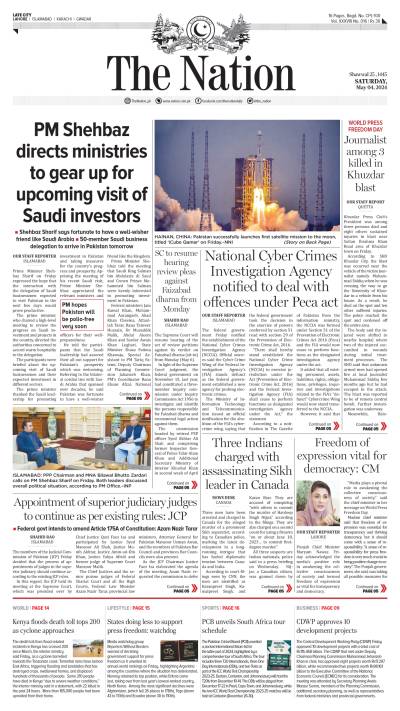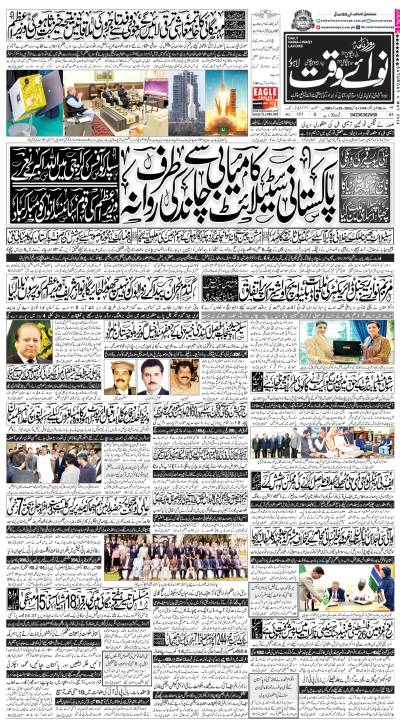India has prided itself over apolitical military and firm democracy. Even when the neighbouring countries lost the ballot box, we were confident that the democratic system in the country faced no danger. We watched the change of governments at the centre on TV screens and it never crossed our mind that the army could walk in to replace bumbling political parties. Our faith in the people to decide on the type of representatives they send to Parliament or state assemblies has never been shaken, although we have not been too happy over the candidates elections have thrown up. I was appalled when I heard the remarks of two retired military officers. They were rightly unhappy over new pay scales of the armed forces. I fully support their plea that the disparity between civil servants and those in the military should go. In fact, the dangers the latter faces or the tasks it is called upon to do should entitle them to be placed a cut above the rest. Why they have been gradually downgraded after the Fourth Pay Commission is not understandable. However, what shocked me were the remarks on a popular TV network. One of the officers said that the army was furious today, but if it were to become ferocious anything could happen. The other officer, who argued the case of salaries cogently, threatened: is fitne kho soye rehne do (let this mischief sleep). I do not want to comment on the remarks because both officers did not realise what they were saying was at the spur of the moment. They were conveying to the nation that if their demands were not met, the consequences would be dire. Even after the programme, if they have not realised the wrongness of their observations, all that I can say is: Forgive them Lord, because they do not know what they say. I only hope that some of their colleagues would point out to them that there was no place in democracy for ventilating anger in the way they did. Sovereignty lies with the people in this country and will continue to remain so. They asserted themselves when Prime Minister Indira Gandhi took away their independence and administered in a dictatorial manner. She and her Congress party were routed. No person or a group should believe that they can ride roughshod over the wishes of the people who, at one time, defeated the mighty British to win freedom. Coming back to the pay scales, I expect Prime Minister Manmohan Singh to intervene. The matter should not have been allowed to reach the pitch it has. Defence Minister A K Anthony is a good man but not a good administrator. This was his reputation as Kerala Chief Minister. That may have been the reason why some reservations were expressed at the time of his induction into the Cabinet. I am told that a tiff between him and Finance Minister P Chidambaram has led to this situation. Strange, that the PMO which keeps track of even trivial matters did not smell a big crisis building up. However deep the grievance, I have not liked the way in which the three service chiefs have gone about getting the pay scales of armed forces raised. This smacks of unionism. I am all for workers' unions but should such a thing reflect at the level of top brass? Naval Chief Admiral Sureesh Mehta, who heads the chiefs of staff committee, was discreet, to say the least, in writing a letter to his men saying that he had been "constrained" to delay payment of arrears and new scales in view of "some serious disparities that have been introduced which disturb the extant parties between defence officials and those from other central services." He has a point. For instance, a Lieutenant Colonel is now to be paid about Rs 17,000 less than civilian counterparts, an IAS officer with the rank of a director and about Rs 12,000 less than a commandant in the paramilitary forces. Similarly, a Lieutenant General will be paid less than a Director General of Police which reduces his status. At the lower level, the pension of jawans has been reduced. Ironically, the entire package would cost the government just another Rs 450 crore. By the time this column appears, it is probable that the prime minister would have taken up the matter at his level and sorted things out. But the remarks of the two top retired officers give a peep into the thinking of a section of the military officers. It is palpably wrong and dangerous. I do not know if the armed forces have taken into consideration the Border Security Force which is the first line of defence. The risks they take or the dangers they face are in no way less than that of the armed forces. The writer is a former member of the Indian Parliament and senior journalist E-mail: knayar@nation.com.pk
Saturday, May 04, 2024
Sovereignty lies with the people
Tourist Tragedy
May 04, 2024
Ending Polio
May 04, 2024
Will Justice Prevail?
May 04, 2024
Fair Play
May 03, 2024
Parliamentary Stalemate
May 03, 2024
Current state of affairs
May 04, 2024
Cryptocurrency revolution
May 04, 2024
The accessibility revolution
May 03, 2024
Maternal well-being
May 03, 2024
Tackling poverty
May 02, 2024
ePaper - Nawaiwaqt
Advertisement
Nawaiwaqt Group | Copyright © 2024





